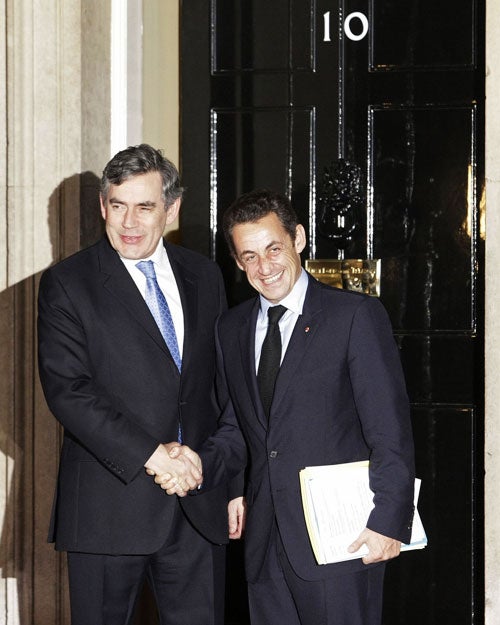Our economies are strong, say EU leaders

Your support helps us to tell the story
From reproductive rights to climate change to Big Tech, The Independent is on the ground when the story is developing. Whether it's investigating the financials of Elon Musk's pro-Trump PAC or producing our latest documentary, 'The A Word', which shines a light on the American women fighting for reproductive rights, we know how important it is to parse out the facts from the messaging.
At such a critical moment in US history, we need reporters on the ground. Your donation allows us to keep sending journalists to speak to both sides of the story.
The Independent is trusted by Americans across the entire political spectrum. And unlike many other quality news outlets, we choose not to lock Americans out of our reporting and analysis with paywalls. We believe quality journalism should be available to everyone, paid for by those who can afford it.
Your support makes all the difference.European leaders insisted last night that the continent's major economies remain strong in an attempt to reassure the markets after days of turmoil.
Meeting at 10 Downing Street, the leaders of Europe's largest economies insisted that the "fundamentals" of the EU economy were sound despite the global credit crunch and last week's sharp falls on international stock markets.
The French President, Nicolas Sarkozy, the German Chancellor, Angela Merkel, the Italian Prime Minister, Romano Prodi, and the European Commission president, José Manuel Barroso, were meeting Gordon Brown at No 10 to discuss reform of international institutions and new cross-border co-operation to strengthen the response to any future economic shocks.
The Prime Minister's official spokesman insisted that the Downing Street talks were informal, but he said the leaders were using the occasion to send a message that the European economy remained strong, and blamed problems with the US economy for the turbulence on international markets. The leaders discussed improving international co-operation to maintain economic stability such as proposals to enhance the role of credit rating agencies to improve transparency in the banking system.
They were also due to debate Mr Brown's proposals to give the International Monetary Fund a new role as an "early warning system".
Mr Brown's spokesman said: "The fundamentals of the economy of Britain and the rest of Europe remain sound but we have to be vigilant about the risks."
His words were echoed by Mr Barroso, who insisted that Europe "remains on the growth path" but warned against a package of tax cuts or spending increases to boost the economy. He said: "We cannot be complacent, but we can be confident. The fundamentals of the EU economy are sound. We have the lowest unemployment rate for 25 years. We have a positive current account balance. The euro is strong."
He added: "What is needed now is action that is targeted and proportionate. We must not be tempted into protectionism or futile attempts to stem financial globalisation or an artificial stimulus of the economy. We need a detailed diagnosis of the financial markets followed by precise intervention."
A meeting of G8 finance ministers next month will develop specific proposals before the leaders of the world's largest economies meet in Japan in July.
The Chancellor, Alistair Darling, will announce a programme of measures today aimed at beefing up regulation of the banking system in the wake of the Northern Rock crisis.
Yesterday he said international action was needed "quickly" to ensure that the economy was protected from future shocks to the financial system.
Join our commenting forum
Join thought-provoking conversations, follow other Independent readers and see their replies
Comments